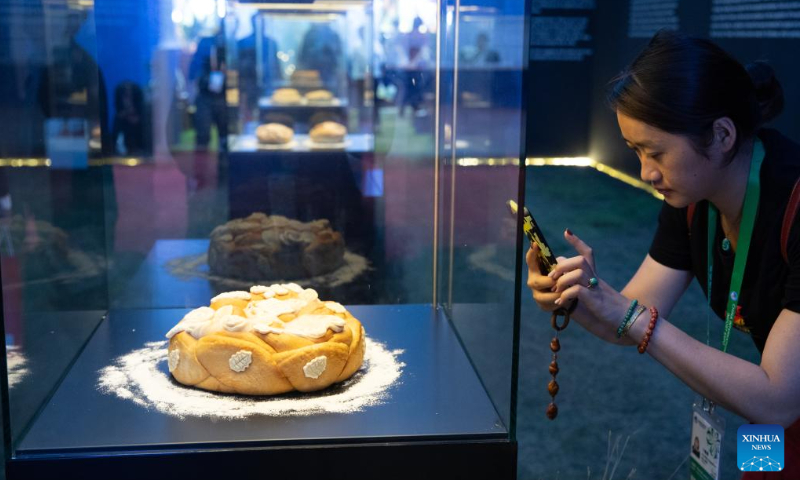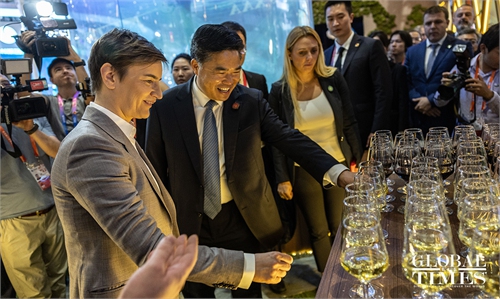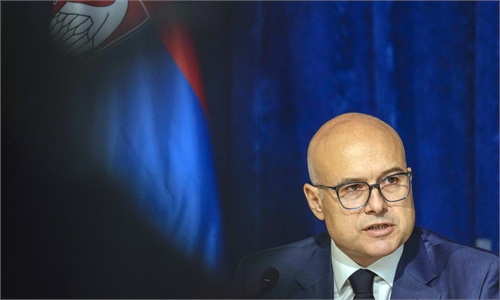
A visitor takes photos of Serbian bread displayed at the booth of Serbia at the 6th China International Import Expo (CIIE) in East China's Shanghai, November 6, 2023. Photo: Xinhua
A Serbian official holds the China-proposed Belt and Road Initiative (BRI) in high regard, of which Serbia joined in 2015, at the ongoing 6th China International Import Expo (CIIE).
"The BRI is unique because it's not a hegemonic initiative. We recognized this from the first moment, that the BRI is completely in line with the sustainable development goals of the UN," Danijel Nikolic, assistant secretary-general of the government of the Republic of Serbia, told the Global Times.
On November 5, Serbian Prime Minister Ana Brnabic visited the Serbian National Pavilion at the 6th CIIE.
The Serbian National Pavilion features a tree of life, traditional Serbian culture, and Serbian food and beverages such as bread and wine.
In contrast to the BRI, a hegemonic initiative is led by one big nation with the sole goal of benefiting itself, the Serbian official said.
"The BRI leaves no one behind. China recognizes that the continuity of growth is possible only if the entire world is growing together, and sustainability can be reached only if we grow as a society of human beings," Nikolic said. "And that is the difference between China and some other countries, especially Western ones."
The 6th CIIE, the world's largest import-themed fair, is taking place just weeks after China successfully hosted the third Belt and Road Forum (BRF) for International Cooperation, which saw record attendance from Belt and Road partner countries showcasing their products and services.
Among the 72 national pavilions at the sixth CIIE, 64 are from Belt and Road partner countries.
Additionally, as China accelerates its process of opening up its markets, the number of countries entering into free trade deals with China has more than doubled in the past decade.
In October, China and Serbia signed a free trade agreement, removing tariffs on up to 90 percent of each other's imported goods.
The deal was announced at the BRF in Beijing, witnessed by the top leaders of both countries.
"With the FTA, which will come into force really soon, we hope the big Chinese market will be open for most Serbian products with low tariffs or without any tariffs," Nikolic said, noting that the Serbian market will also be open for Chinese products.
"Our companies are also really interested in organizing quite a few meetings with Chinese exporters, not just importers, because many of the products we also import from China," Nikolic said.
"Something which the Chinese market already recognizes, and where we have significant expertise, is definitely in wine," Nikolic said, noting that some other Serbian products eyeing the Chinese market include various meat species, honey, and pet food.
Bilateral trade between China and Serbia reached $3.56 billion in 2022, a year-on-year growth of 10.1 percent, data from the Ministry of Commerce showed.



